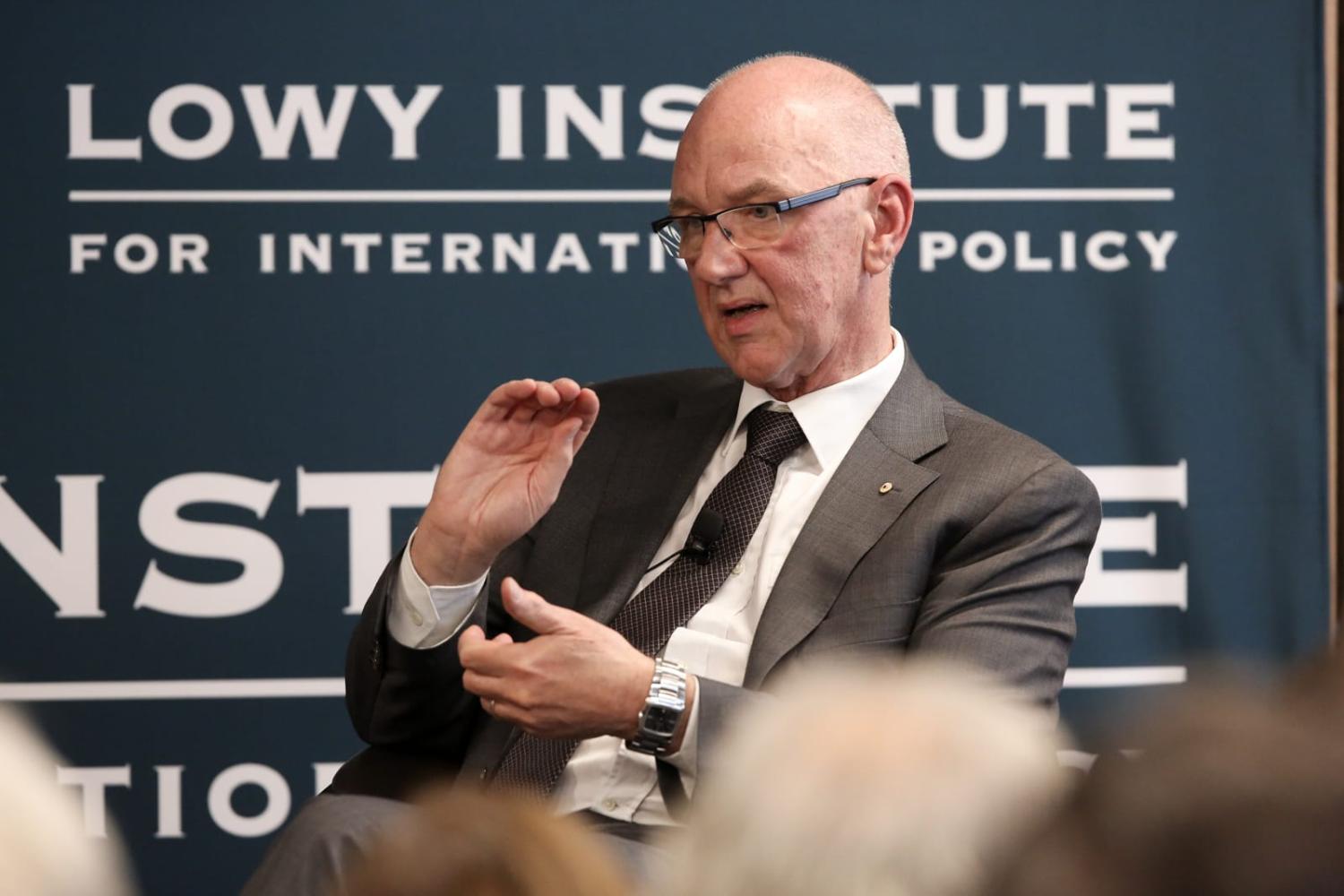Allan Gyngell had a knack for plain speaking – cutting through the honeyed tones that so often stick to debates about foreign policy and Australia’s place in the world.
“History is by no means a perfect guide to what is likely to happen,” Gyngell once remarked, “but it is one of the best we’ve got.”
A man of deep wisdom on Australian diplomacy, Gyngell passed away overnight, a few weeks after being diagnosed with cancer. “My life has been very fulfilling,” he told me last month, typically reflective, always one for the long view. “Luckier than most.”
And his was an extraordinary career. Australia’s chief intelligence analyst, head of what was then known as the Office of National Assessments. International adviser to a prime minister. Diplomat. Author.
Gyngell was also the first executive director of the Lowy Institute, with a legacy that has shaped its 20 years as Australia’s most prominent international affairs think tank.
Foreign Minister Penny Wong praised Gyngell last month at the National Press Club in Canberra as “frankly, the finest mind in Australian foreign policy”.
“An official and unofficial adviser to governments for decades, always in singular service of Australia’s national interest. He is the definitive historian of Australian foreign policy. He is the finest writer about Australian foreign policy … And possibly also the smallest ego in Australian foreign policy.”
Small ego, true. But Gyngell’s gentle manner belied a savage wit and droll humour. He relished debate and embraced criticism. Gyngell saw in what he once described as the “parallel worlds” between diplomats, military professionals, business leaders and the media the chance to strengthen Australia’s position. Established wisdom was always open to challenge, focusing on facts. He was equally happy to argue about contemporary policies – questions about China or the United States alliance – and past controversies, including Australia’s stance on the Indonesian invasion of East Timor or dealing with the Suharto regime, issues he had a hand in as a public servant. He was not rigid. But he always demanded to be persuaded.
Fitting that for “contributions to the development of public and governmental debate on foreign and security policy” he was awarded an Order of Australia. (Although, quietly a republican and with an abiding disdain for the Commonwealth as a hangover of empire, he would surely have spurned a knighthood.)
Gyngell was a member of the storied “Class of 1969”, a graduate intake of 22 to the then External Affairs department which would go on to spawn Australia’s most influential grouping of ambassadors and high commissioners, departmental secretaries, and intelligence bosses. He benefited from this close network, friends spread in postings across the globe or dotting the various bureaucratic fiefdoms in Canberra. “I didn’t want yes-men,” the late former prime minister Bob Hawke said of the group. “If they had a view that was at some variance with what I was saying, I wanted them to let me know … and they were good in that respect.” Indeed, Gyngell’s willingness to speak his mind almost brought his career to an abrupt end before it’d really began, when, as a junior diplomat in 1972, he saw his name splashed over the Sydney Morning Herald front page after he and three friends penned a letter to the editor criticising Labor’s Arthur Calwell, who had claimed Asians “live on the smell of an oily rag and breed like flies”.
Gyngell’s time in the Prime Minister’s Office came during the Paul Keating years. The two shared a belief that Australia’s future lay with Asia and made “engagement” a theme. Gyngell led secret negotiations for a security treaty with Jakarta, revealed just before the change of government to John Howard. The ensuing political storm likely cost him the chance to be Australia’s ambassador to Indonesia. But that opened other opportunities in the private sector and eventually back in public service. “Allan’s greatest quality is his ability to look across a large landscape, absorbed in nuances, and come to judgements which are invariably right,” Keating reflected in 2009, at the time Gyngell was tapped by then prime minister Kevin Rudd to take charge of ONA – the intelligence agency he’d previously worked for twice, as an analyst and head of the “United States and rest of the world” branch.
After retiring, Gyngell took over as president of the Australian Institute for International Affairs. He was genuinely surprised at the popularity of a podcast he’d agreed to host alongside academic Darren Lim, which ran for more than 100 episodes. He was working on another book, more of a personal memoir to follow from his 2017 Fear of Abandonment, a comprehensive history of Australia’s foreign policy stretching back to the Second World War. And he was a generous contributor to The Interpreter.
More tributes will be offered in the coming days. And debate, too, about Gyngell’s influence and views spanning 50 years. Just the way he would have wanted.

